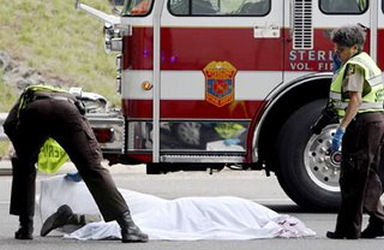
He broke with LaRouche in "the only way he saw as being open to him, given the psychological and situational cage the organization had put him in."

[NOTE: In 2007, long-time Lyndon LaRouche follower Kenneth Lewis Kronberg, who owned PMR (the company where LaRouche's publications were printed), committed suicide after years of emotional abuse and financial exploitation by his leader. Since then, members of the LaRouche cult (referred to herein as the "organization," the "Labor Committee" or the "LC") have set forth on the Internet various fabrications designed to shield LaRouche from accusations that he helped drive Mr. Kronberg to suicide.
In the below response, first posted on the Factnet discussion board on Oct. 29, 2011 and presented here in a modified form, Mr. Kronberg's widow Molly depicts the cowardice, hypocrisy and insensitivity of her former friends in the cult, most of whom are members of either its National Committee (NC) or its National Executive Committee (NEC). All of the persons mentioned by Mrs. Kronberg live in or near the town of Leesburg, VA, where the cult's national headquarters is located. One might call them the neighbors--or comrades--from hell.]
Some time ago on Factnet, LaRouche fan "Eliane" posted a statement to the effect that "Ken [Kronberg] had the option to just keep on driving when he got into that car..." (referring to April 11, 2007, the day Ken drove his car to the Waxpool Road overpass above Route 28 in Sterling, VA, got out of the car, and jumped to his death).
Eliane's remarks came after an even more enthusiastic LaRouche supporter (user name "friend") had posted remarks characterizing me as believing that "LaRouche has some sort of special ability to control people and drive them to suicide and death."
Regarding "friend," I won't comment--his own Factnet postings, and those of "ace" before him, make it unnecessary to speak about his quality of mind. We can let Barbara "Babs" Boyd get advice from the org's lawyers on how to control this clown, just as they zipped up the fake Justice for Jeremiah site on WordPress.org.
As for you, Eliane, I infer that you must have known Ken pretty well. He's "Ken" to you, not "Kronberg." If I'm right about that, your comments are in even worse taste than if you hadn't known him.
But of course, one doesn't speak of "taste" in connection with the Labor Committee or the LaRouche epigonoi. And Lyn [LaRouche] himself calls everyone by his or her first name: from Martin [Luther King] and Bill [Clinton]--his supposed close friends, although he never met either of them--to George [Bush] and Henry [Kissinger], whom he regards as his worst enemies. He calls his "friends" by their first names to suggest how well he knew or knows them and how much they loved or love him, and refers to his enemies by their first names to show in what contempt he holds them.
Second, Eliane, I note that you pride yourself on being familiar with the circumstances of Ken's death ("got into that car"). This recalls the bleak days that followed his death, when Babs Boyd was "investigating" the circumstances--which she did, for example, by driving over the route Ken drove that fateful morning--first to the Dulles Post Office, and then back towards PMR along Waxpool Road to the overpass from which he jumped. (Not sure why she was doing all this; presumably it was because C. Auguste Dupin LaRouche ordered her to. At least, LaRouche claimed in one of his internal memos after Ken's death that he was investigating. When I asked Babs about it, she said he wasn't, really, he was just trying to shut members up. I guess some of them weren't totally buying what he was selling.)
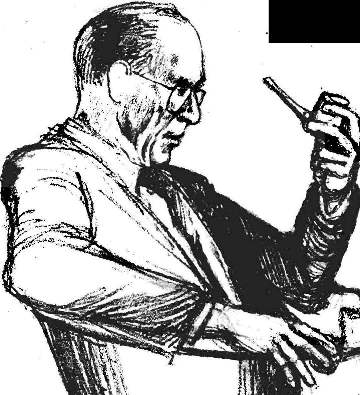
In any case, now--four and a half years after Ken's death--we have his good friend Eliane advising him to get in his car and keep on driving. Is Eliane saying (gasp) that Ken should have left the Labor Committee?
Let's look at it from Ken's point of view, Eliane. Ken was living from moment to moment in fear of being savaged yet again by Lyndon "Ken has a criminal mind" LaRouche, aka Lyndon "Now we have our foot on Ken's throat" LaRouche. Ken was being persecuted by Lyn, hounded by Legal Eagles Babs and Bruce [Bruce Director], and sweet-talked by the ever-oleaginous Jeff Steinberg. Meanwhile, his pleas for the org to pay its incessantly mounting debts to PMR were being ignored by terminally blocked Nancy Spannaus and resident Stalinist Dennis Small (the NEC members in charge of the "Finance Office").
So Ken should just have kept on driving? At the age of 58, with personal responsibility (and that could be criminal responsibility, Eliane) for paying to the IRS a couple of hundred thousand dollars in unpaid withholdings, with his two companies crumbling (the week he killed himself was the week they went under; they couldn't keep going without him), with no job and no prospects, with Lyndon LaRouche and the International Caucus of Labor Committees stiffing him for the millions they owed him, and with LaRouche attacking him more and more viciously--and of course, publicly--as the traitor who was destroying the organization?
Whatever you may think of Ken's decision to commit suicide, Ken was never so irresponsible as just to have kept on driving. If Eliane is advising that Ken should have left the Labor Committee, I couldn't agree more. As I said to Nancy Spannaus two days after Ken died, Ken did leave the Labor Committee--in the most dramatic way he knew how.
It wasn't because Ken's death had no effect on the org that Lyn freaked out (details withheld for the present). It's because it had a huge effect-- albeit, on a conscious level, a short-term one (LaRouche has a limited attention span, as do his colleagues).
Don't you think Ken knew his suicide would have a huge effect? After all, I think we can all agree that Ken was a highly intelligent man. So yes, Ken left the Labor Committee.
He did it in the way most damaging to LaRouche that he could think of--the only way he saw as being open to him, given the psychological and situational cage the LaRouche org had put him in.
Ken's suicide was the strongest possible expression of his outrage against the way he'd been betrayed by LaRouche et al.--misled, abused, attacked, and abandoned. I think everyone who knew Ken well could and did deduce that it was the org that destroyed him, even if they won't say it publicly.
The Labor Committee natters on about how Ken killed himself in 2007 because I gave money to Bush in 2004, or Ken killed himself because he was afraid of going to jail. (A Labor Committee member afraid of jail? Doing time was practically de rigeur for those who followed LaRouche. The only Labor Committee member I recall who was utterly terrified of jail was LaRouche himself.)
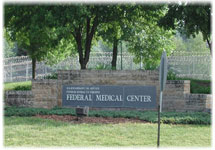
They even claimed that Ken killed himself because I--his wife--was posting on the Factnet discussion board. In fact, the first time I ever saw something from Factnet was the occasion on which, in the summer of 2004, Babs gave me a stack of printouts from Factnet and asked me to figure out the identity of the person posting under a certain user name. I never posted on Factnet myself until after Ken died, when suddenly I had a reason to.
The day of Ken's death
Now, let's look at some real options, Eliane. Let's look back to the morning of April 11, 2007, just before Ken got into that car.
The Morning Briefing that day, as we all know by now (or should know, if we've been paying attention), was written by Tony Papert based on an NEC meeting the night before at Lyn's house, Windy Hill. It was titled "What Is Leadership?"
And before you read the passage I excerpt below, consider that Ken had been the target for several years of almost-nonstop abuse from Lyn, including unfounded accusations of defalcation, financial mismanagement, trying to destroy the organization, etc. For the preceding year, Ken had been under the thumb of an NEC "financial management" committee composed of Lyn (the invisible but never silent partner), Babs, and Bruce. Ken was having to clear his business decisions with Babs, who knew absolutely nothing about the printing business (or any business), and believe me, Ken hated doing that.
Anyhow, here is the most pertinent portion of the April 11, 2007 Morning Briefing:
"When Lyn came out of jail, he presented his solution to the sales force in the very living room in which he spoke last night [that is, Lyn's living room--MK]. People went screaming out of the room, and refused to change. This Boomer policy failure went on uninterrupted into Y2000, and only changed as the Y2K bubble finally exploded. The print shop was the worst. 'Lyn is wrong,' they said. 'There may be crisis, but the economy won't go under. There will always be money there for people smart enough to grab it.' This was the prevalent approach radiated back and forth, out of Leesburg into the whole organization.
"Winstar was another part of it; a phoney [sic] company which was paying big salaries, while producing and selling absolutely nothing! 'We have a lifestyle.' Commitment to the lifestyle was a cause of the collapse. Some of them disappeared in 2000 or thereafter.
"Don't go telling a Boomer to exert leadership. We're organizing the country: namely the 18-35 year olds. How? Just like an army: convince them that that's what they should be doing! That's what we're doing! The change into the new news aspect of the LPAC website by the LYM is the key to everything. It's already raised the quality of our intelligence, much of which was bull**** (if passable bull****) before. We're entering into active exchange with significant people, not just in the US, but into [sic] Russia and India as well. We're in interchange of views with key people in various parts of the world.
Helga Zepp LaRouche (far right) "in interchange of views with key people" in Nigeria in Dec. 1997. The country's then dictator, Sani Abacha, is second from left in sun glasses."We're reaching the most active part of the younger generation, with product which no one would have dreamed of. We go the the [sic] Boomers: 'We're your boss.' 'You? Who are you?' 'We represent the youth, the leadership.' But, you have to make it stick!
"We're stirring controversy; we're getting responses,--often enraged responses. Rage! How can you say that? How dare you? We're setting the agenda, by forcing them to respond. That's how you organize the older generation: 'Hah! These young guys are doing something!' it's always that way,-- it's young adult leadership which moves the entire population.
"Young adult leadership [moving] the entire population...""Through the website postings, pulled together into briefings in the evenings, the publications develop over weeks. Not stylized, stereotyped publications which must always devote one page to this and two pages to that. Take the ideas off the website and deploy with them. To influence the population, you need ammunition. The best is knowledge they could not get otherwise. They may not agree, but they'll be impressed by your command of the subject and your mission. That's the way you organize. It's not consolidated yet; we can do much better, and we will do much better in two weeks. In one month, we won't recognize ourselves.
"The Boomers will be scared into becoming human, because you're in the real world, and they're not. Unless they want to commit suicide.
"Our members became demoralized by taking their approach of the 1980s and '90s, and trying to adapt it to a different situation, where it can't function. They stopped thinking how to win, and instead tried to adapt to failure. The right approach is not a ritual in which we glorify our 'suffering.' It's to provide effective leadership to society, and to go to society: 'this role must be supported.'
"Take the website. How insane were we, not to do all that time what we are doing now? It was clinically insane. To build a mass movement, you need a mass base. The easiest way is through this sort of website! It [sic] you think you can succeed without a mass effect, you're an idiot!
"The Boomer is characterized by a self-imposed insecurity; a sense of jeopardy regarding his personal identity in society. Imagine yourself at a big party of cannibals, wondering if you'll be next. [This last sentence is a perfect description, if unintentionally so, of the LaRouche organization's leadership.--Eaglebeak.]
"LPAC is it. Our impact as an organization in every way depends on LPAC, which depends on its website. Activate that! Don't look for any other miraculous plan. No effort we do would exist without LPAC. The world has changed! Any other idea is masturbation: a lot of work and no satisfaction!
"LPAC is the equivalent of a political party among other political parties. It raises all the leading political issues of the world, which are all contained in US policy. US policy is contained in LPAC; everything else is an adjunct. And what LaRouche does defines LPAC.
"Lyn concluded by addressing the youth: You must represent the pinnacle of what mankind has achieved so far. Not as something given to us, but as a responsibility. We will make the world a better place for the human race, as FDR wanted. Therefore, demand of yourself the very best. You can be confident if you represent of [sic] what our culture has won.
"Lyn is pleased that the LPAC operation is working; now it's ready to go wild. It's our opportunity; no one else could take it. There's a dead generation in the Senate, but we're going to start having fun doing this,-- it'll work."
A couple of comments: First, Lyn's remarks about PMR ("the print shop is the worst") were understood by one and all to refer to Ken. Ken was the president, the owner, the NC member--in Lyn's Fuehrerprinzip mind, Ken was PMR.
Second, only two days after Ken died--that is, on Friday, April 13, 2007--when I taxed Nancy Spannaus with what had been said about PMR (= Ken) in the briefing, Nancy told me, "Well, that wasn't supposed to be in there." Oh, okay, Nance. My husband has just committed suicide--the most terrible thing that has ever happened to me and (far more important) the most terrible thing that had ever happened to him--but the main thing you think needs emphasizing is that this particular rant of Lyn's wasn't "supposed" to be in the briefing?
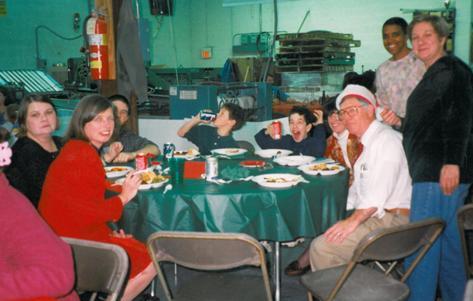
Let's assume Nancy uttered that absurdity because she was grasping at straws, looking for ways to exculpate Lyn and the org, and to try to lay Ken's death at Tony Papert's door. (Later the org tried to blame it on me, but not at first.) Nancy's improvised response just raised more questions. If the suggestion that Ken should kill himself wasn't supposed to be in the briefing, and appeared there only because Tony Papert is a deeply disturbed person (something other members of the NEC do not dispute), the first, although least important, question is: Why let Tony Papert write briefings? Why let a man so actuated by venom, so infused with hatred and fear--and so unconscious of his own motives--anywhere near the briefings? Or, if Lyn wants Tony to write briefings because he values Tony's viciousness, why not at least have some other member of the NEC read it before it's sent out? Eh?
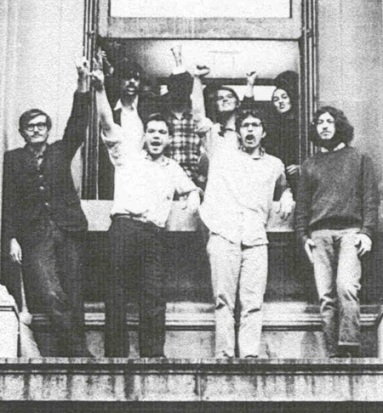
The NEC, however, is beyond supine. So there's no point in asking that last question. It implies a kind of real-world-oriented sanity to which they are strangers.
Options, Eliane
And here, Eliane, is where we get to some real options, those which Ken's so-called friends in the LC could have exercised but didn't.
Nancy Spannaus knew what Ken was going through. As early as the summer of 2006, when Lyn was verbally battering Nancy's husband Ed for a supposedly incorrect EIR headline that Ed didn't even write--and when Lyn removed Ed from the NEC, and the NC, and in effect had him washing the floors in the National Office--I went to Nancy and said to her "Why are Ken and I being driven out of the organization?" I told her I didn't "care that much for myself" (Nancy knew me pretty well, though she may pretend now to Lyn that she didn't), "but Ken cares and it's killing him." Nancy didn't say, oh, you're not being driven out; she just said "I don't know." Then she added that she felt as if she and Ed were being driven out too. But by golly, you always knew the Spannauses would hang on by their fingernails. And they have.
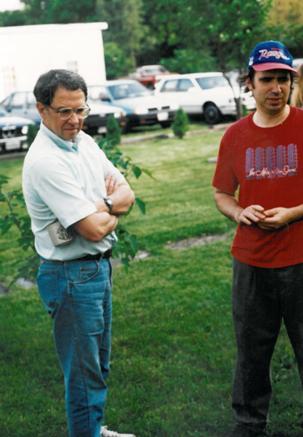
Okay, so in the summer of 2006 Nancy knew that Ken was going through hell--and Ken and she talked all the time: she'd tell him she couldn't send him any money to pay down the organization's debts to PMR, but that he was expected to get the publications out all the same. Bear in mind, too, that Nancy was the "NEC member" for PMR/WorldComp--that is, Ken as an NC member was supposed to report to her. Also bear in mind that, apart from some hiccups around Ken's and my desire to have children and Nancy's "interventions" (the first one of which was fatal--to the baby I was pregnant with in 1975), and around the 1989 New York trial in which I was considered an insubordinate defendant, Nancy, Ed, Ken, and I had been friends for decades.
Wouldn't you think, since Nancy knew how upset Ken was, and since Nancy knew how much Lyn was attacking Ken, and since Nancy knew how close to the brink PMR and WorldComp were, that when she saw the Morning Briefing with all the scurrilous crap Tony had included, she would have taken the option to pick up the phone and call Ken? Would it have been so difficult for her to give him a few words of reassurance, like, "Don't worry, Ken. You know how Lyn gets (ahem). But we'll back you up"? Not a word from Nancy. Not a sound out of her mouth.
Or how about Dennis Small? Wouldn't you have thought he would have taken the option to pick up the phone? In his case, frankly, not so much--but I include him for rhetorical purposes. I mean, Dennis Small is the guy who told me at Ken's funeral that he would always remember Ken as a wonderful editor, not as embroiled in a huge financial-legal mess. It struck me at the time that, with Ken so lately dead, Dennis Small was airbrushing history--I guess it was his Stalinist family roots--and that he was telling me, in effect: 'I don't care whether we killed your husband with this mess; I choose to remember it differently.'
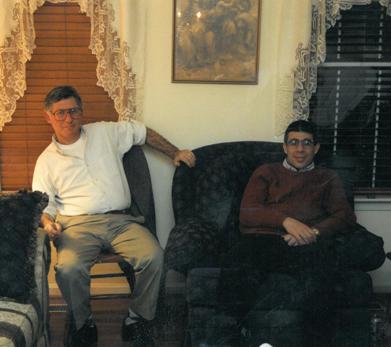
How about Jeff Steinberg? I mean, how many times had Ken and I and Jeff and Michele gotten together to discuss why Tony Papert was running a vendetta against us, or why Lyn was out to get Ken?
How about it, Jeff? Why didn't you take the option to pick up the phone the morning of April 11 and assure Ken of your support? Heaven knows, you were at my house fast enough a few hours later, after learning of Ken's death. You pounded up the stairs to my living room while the Sheriff's deputies were still talking to me. Probably you wanted to be present to make sure I didn't say anything bad to the Sheriff. But I'll never know, because my pastor told you to leave because I didn't want you there.
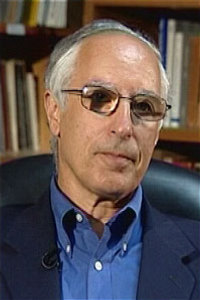
Oh, and let's not forget Babs. She talked to Ken every day, to make sure he was doing what Lyn wanted at PMR and WorldComp. From having been an outcast, beaten up by Lyn, she had become his Fouché. But she knew what Ken was going through--knew or should have known. And Babs had advised Ken to tell Nancy to back off and had suggested that Ken stop printing EIR if Nancy didn't cough up the money he was owed. Hmm. You would think that under these circumstances, with her being so familiar with the overall situation, Babs would have found the time to take the option of picking up the phone that morning.
Apparently not. She had plenty of time later to "investigate Ken's death for Lyn," and endless time to spend with me--presumably to make sure I didn't defect to the enemy. At the end of our second-to-last dinner together, when it had become pretty obvious that I was not cooperating, and when a document created on my desktop had already shown up on Dennis King's website, she told me she was considering moving into my house to "take care of me" (keep an eye on me; check out who I was talking to; go through my email files).
And of course, someone could have picked up the phone and called me at work to tell me about the Morning Briefing. Babs or Nancy, for example. If they had, I would have called Ken immediately and walked him through the shock of Lyn and Tony's attack. He'd be alive today if one of them had exercised that option.
But I didn't see the briefing until late on the night of April 11, hours after Ken had died. It was pointed out to me by members of the org who were close friends of Ken's and mine, and who came to visit me that night--the only members who came to visit me that night.
So, Eliane, when you speak of options, don't advise us on what Ken's were--he had fewer options than almost anyone else in the org. Instead, consider all the options--all the opportunities--the others missed.
And which they know they missed, although they will never, ever admit it.
------------------------------
For Lyndon LaRouche Watch's view of the Kronberg case, read:
"Kronberg as Judas in the Mind of Lyndon LaRouche" and "Lyndon LaRouche and the Art of Inducing Suicide"